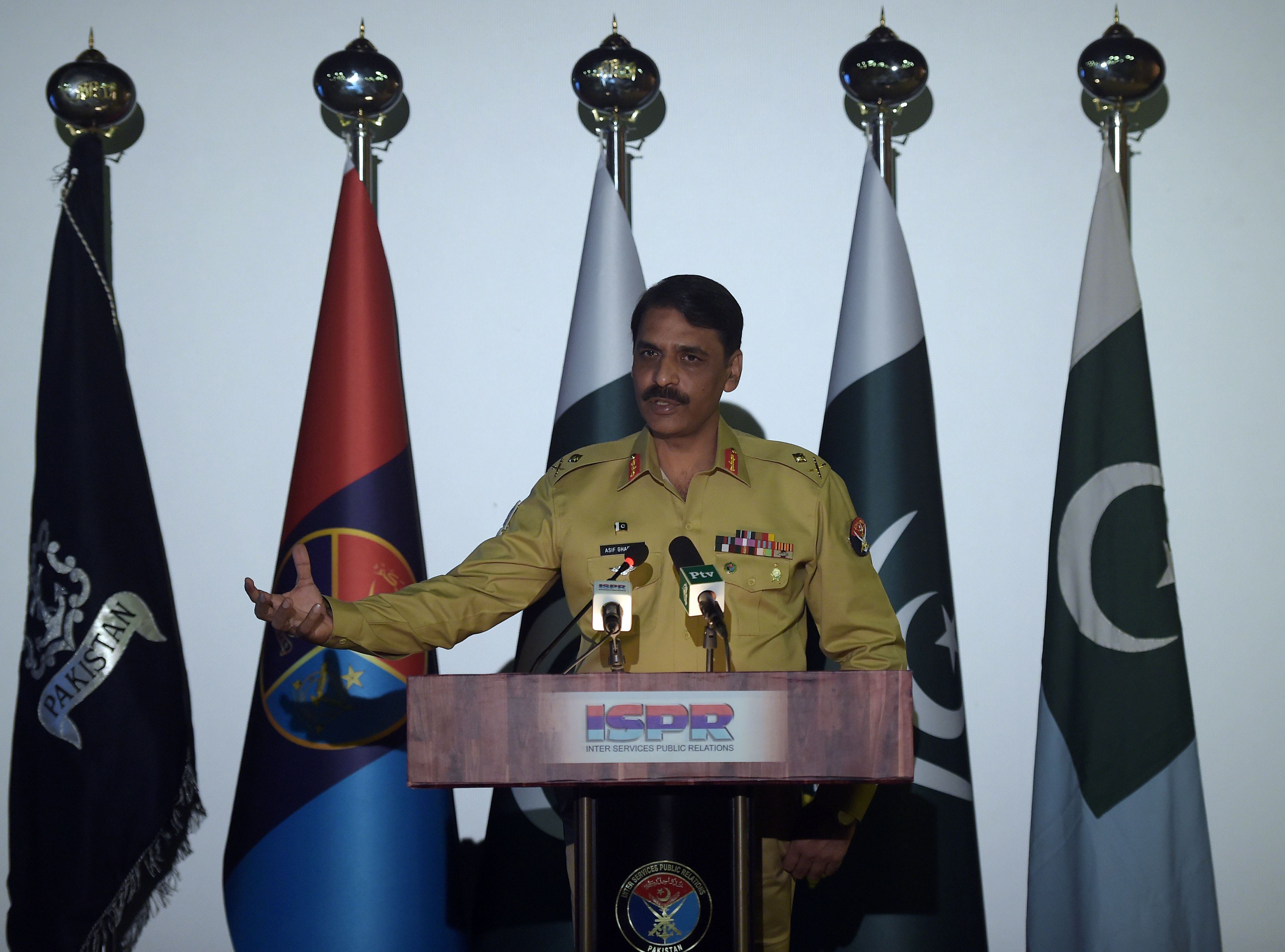ISLAMABAD — Civilian and military authorities in Pakistan have reacted angrily to U.S. President Donald Trump’s accusations that Islamabad provides safe havens for terrorists operating in Afghanistan.
On Monday, Trump said Pakistan had “much to lose by continuing to harbor criminals and terrorists,” and he questioned support for the country.
The following day, U.S. Secretary of State Rex Tillerson described a bilateral “erosion of trust,” adding that the U.S. was willing to work with Pakistan but support could be conditional on the results in tackling terrorism.
Pakistan’s Foreign Office reacted Wednesday claiming in a statement that the U.S. failed to recognize Pakistani sacrifices made in fighting terrorism.
“As a matter of policy, Pakistan does not allow use of its territory against any country. Instead of relying on the false narrative of safe havens, the U.S. needs to work with Pakistan to eradicate terrorism.”
On Tuesday, Maj. Gen. Asif Ghafoor, director general of Inter-Services Public Relations, the Pakistani military’s media arm, noted: “An American delegation recently visited Pakistan and acknowledged the Pakistan’s efforts to uproot terrorism.”
The U.S. Central Command delegation headed by Gen. Joseph Votel had visited on Aug. 19 the North Waziristan Agency that borders Afghanistan, where the U.S. military officer praised Pakistan’s efforts in clearing out the former militant stronghold.
Ghafoor also denied any terrorist safe havens existed in Pakistan, even for the Haqqani network.
Pakistan’s Army chief Gen. Qamar Javed Bajwa on Wednesday also told U.S. Ambassador to Pakistan David Hale that the country was “not looking for any material or financial assistance from USA but trust, understanding and acknowledgement of our contributions.”
”Collaboration and synergy of effort between all stakeholders is the key to success to bring this long-drawn war in Afghanistan to its logical conclusion,” the general added.
The new U.S. approach does not impress analyst, author and former Australian defense attache to Islamabad Brian Cloughley. He believes it unsurprising that Washington should seek to blame Pakistan for its failures, but finds it telling the CENTCOM commander was able to visit Waziristan in Pakistan. “He couldn’t visit Helmand” across the border in Afghanistan, which is under full Taliban control, Cloughley said.
He asserted victory has been unobtainable in Afghanistan for 16 years, with the country having only become “more corrupt and ungovernable” since.
He has long believed the insurgency will continue until foreign troops leave, leading to the collapse of a central government and the rise of anarchy until a “strong man“ emerges to keep the country together. He also believes foreign troops should leave as soon as possible.
Trump also hinted at upgrading India’s role in Afghanistan — a statement that alarmed Pakistan.
Pakistani Defence Minister Khurram Dastgir told the Senate on Tuesday that India may possibly be emboldened to undertake military action inside Pakistan on the pretext of attacking groups contesting New Delhi’s control of Indian-administered Kashmir.
He said any Indian military action would be effectively countered.
Fearing being sandwiched between two hostile states, Pakistan is wary of India’s interest in Afghanistan.
But Amina Khan, an Afghan expert at the Institute of Strategic Studies in Islamabad, believes Pakistan would recognize and welcome Indian involvement as long as it was “not detrimental to the interests of Pakistan.” Presently however, there is “ample evidence” of Afghan and Indian efforts to isolate Pakistan.
Historically, poor relations coupled with India’s support of groups involved in militant activity inside Pakistan means India’s presence in Afghanistan is viewed with concern, driving Islamabad’s desire to have a friendly government in Kabul.
While the role Trump would like India to play in Afghanistan is presently undefined, Khan believes it is important to recognize India is “vehemently opposed” to the Afghan Taliban and a peace process with the group. Therefore, increasing India’s (still undefined) involvement “would be highly unwise as it would further complicate matters in Afghanistan.”
There has been previous talk of India training Afghan forces, supplying troops, and possible defense cooperation, but Khan said India’s involvement “should be limited to economic and developmental assistance.”
Khan believes Washington would presently be better served using its influence with Islamabad and Kabul to push for improved ties and a resumption of peace talks with the Taliban. “India has an important role to play in the future stability of Afghanistan, particularly in terms of economic assistance and development; however, its role in the peace process should be limited at this particular juncture.”
Nevertheless, Khan said, Kabul is in a position to encourage Pakistan and India to have good relations with Afghanistan, “so long as they are not detrimental to each other’s interests.”
“Afghanistan can, in fact, prove to be a common ground for both states to establish workable relations, with the hope that both Pakistan and India can move towards the resumption of talks for a successful peace process.”
Usman Ansari is the Pakistan correspondent for Defense News.







